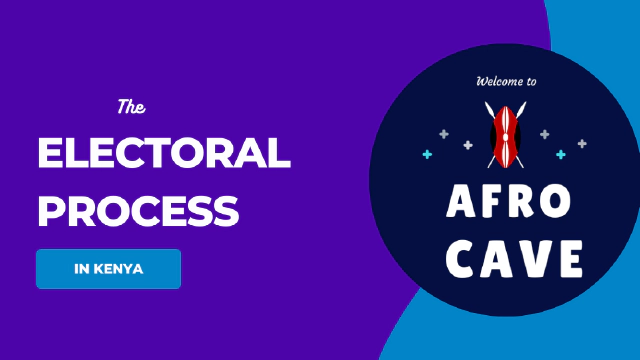The electoral process in Kenya is a continuous process, but the pinnacle of the process is the general elections which happen every five years.
In many jurisdictions, the electoral process is a requirement for a government to qualify as a democracy.
Different election laws govern the electoral process. The Independent Electoral and Boundaries Commission oversees the majority of the electoral process in Kenya.
Electoral democracy is a civil, constitutional order in which voters fill the legislative and executive branches through periodic, competitive, multiparty elections in which all citizens have equal voting rights.
The electoral process in Kenya involves, among other things, the following procedures–
- formulation of legislation;
- conflict management and prevention;
- voter registration;
- civic education and voter education;
- formulation and implementation of codes of conduct;
- nomination of candidates;
- campaigning;
- voting;
- tabulation of votes;
- announcement of results; and
- resolution of conflicts and disputes.
Table of Contents Show/Hide
The electoral process in Kenya
Below is a compilation of some of the procedures in the electoral process in Kenya on this website.
1. Voter registration
The process of voter registration in Kenya involves taking the details of the citizens eligible to vote and recording the details in the register of voters for elections.
The Independent Electoral and Boundaries Commission (IEBC) has the mandate of voter registration as per the Constitution.
Read more about voter registration in Kenya.
2. Recruitment of election officials
The election officials are the polling clerks, presiding officers, and returning officers, among others.
The major role of a Polling Clerk is to ensure the good conduct of elections in the polling station as assigned by the Presiding Officer. Read more about the Polling Clerk.
The major role of a Presiding Officer is to manage and oversee all aspects of the poll in the polling station that they are responsible for. Read more about the Presiding Officer.
The role of the Returning Officer is to ensure that the conduct of an election at the constituency level is following the law. Read more about the Returning Officer.
3. Laws governing elections
Article 82 (1) of the Constitution says that Parliament shall enact legislation to provide for the–
- delimitation of electoral units;
- nomination of candidates;
- continuous registration of citizens as voters;
- administration of elections and referendums, as well as the regulation and efficient supervision of elections and referendums, including the nomination of candidates for elections; and
- continuous registration of citizens residing outside Kenya and the progressive realisation of their right to vote.
Read more about the election laws in Kenya.
4. Types of elections
The three major types of elections in Kenya are the General Elections, By-Elections, and Referenda.
The other three types are the Recall Elections, the Runoff elections and Primary Elections.
Read more about the types of elections.
5. The voting process
The voting process in Kenya ensures that Kenyans participate in the democratic process of choosing the people who will govern them.
During the general elections in Kenya held every five years, Kenyans elect six representatives who will represent them at the national and county level.
Read more about the voting process in Kenya.
6. Marking ballot paper
A voter needs to know how to mark a ballot paper in Kenya in any election.
This ensures the voter avoids mistakes in the voting booth such as voting for the wrong candidate. It also ensures the ballot does not become a spoilt vote.
The ballot paper is an official electoral paper containing the symbols of parties and names of candidates vying for any given elective position.
Read more about how to mark a ballot paper.

